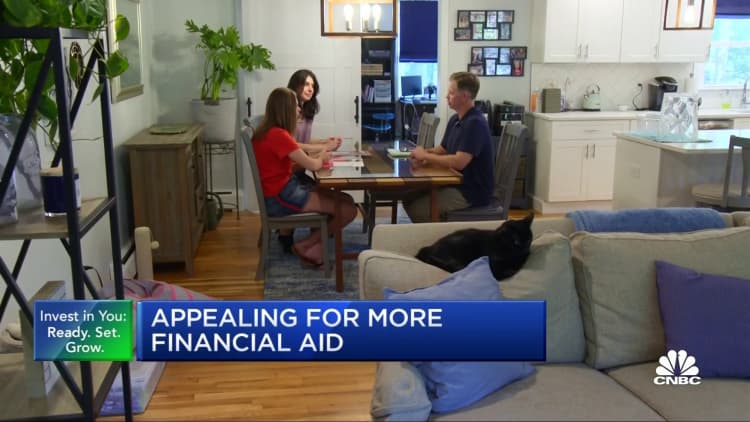PeopleImages | E+ | Getty Photographs
Above all else, the brand new Free Software for Federal Scholar Help was designed to enhance school entry.
Nonetheless, issues with the rollout have left many college students and their households pissed off with fewer college students making use of general. As of the final tally, almost 4 million college students have submitted the 2024-25 FAFSA kind to this point.
That’s a fraction of the 17 million college students who use the FAFSA kind in odd years, in line with the U.S. Division of Training.
Extra from Private Finance:
How the affirmative motion choice impacts school candidates
Biden administration forgives $4.9 billion in scholar debt
Faculty enrollment picks up, however scholar debt is a sticking level
Increased schooling already prices greater than most households can afford, and school prices are nonetheless rising. Tuition and costs plus room and board for a four-year personal school averaged $56,190 within the 2023-2024 college 12 months; at four-year, in-state public schools, it was $24,030, in line with the Faculty Board.
For many college students and their households, the quantity of monetary assist provided and the breakdown between grants, scholarships, work-study alternatives and scholar loans are key to masking the tab.
This 12 months, these award letters will more likely to look quite a bit completely different — and people adjustments open the door for households to ask for extra school assist, consultants say.
“Every student should anticipate doing an appeal this year,” mentioned Bethany Hubert, a monetary assist specialist with Going Merry by Earnest.
What’s modified with the brand new FAFSA
The simplified kind now makes use of a brand new calculation known as the “Student Aid Index” to estimate how a lot a household can afford to pay.
Below the brand new system, extra low- and moderate-income college students may have entry to federal grants, however the adjustments will scale back eligibility for some wealthier households.
And, as a part of the FAFSA simplification, households will not get a break for having a number of kids in school on the identical time, successfully eliminating the “sibling discount.”
‘Sibling low cost’ change makes a ‘good case’ to attraction
The brand new FAFSA “is going to benefit low-income students, less so for wealthier students — that’s kind of the redistribution we would want, to some extent,” mentioned Menaka Hampole, assistant professor of finance at Yale College of Administration.
Nonetheless, in consequence, some households could discover their monetary assist award letter doesn’t reside as much as their expectations, particularly if there are different siblings in school.
“There’s a good case” for making an attraction, Hampole mentioned. “The question is whether people know that they can.”
Whether you are already enrolled in college or an incoming freshman, schools are often receptive to appeals for more aid; they just don’t advertise it, experts say.
How to appeal for more college aid
“If the new FAFSA impacted you, for example, you no longer qualify for the sibling discount, colleges do have the ability to take that into account,” Hubert mentioned. “That is something families can reasonably ask for.”
“The first step is always going to be reach out to the financial aid office and ask them about their process,” Hubert suggested. Then, begin getting ready your attraction.
If there are need-based points past what was famous within the monetary assist paperwork, comparable to one other sibling in school or adjustments in your monetary circumstances, that must be defined to the college and documented, if potential.

Alternatively, if the monetary assist packages from different, comparable faculties had been higher, that can also be value bringing to the college’s consideration in an attraction.
“When you combine that with a student showing a lot of interest, sometimes a school will be willing to adjust the financial aid package, particularly at private schools,” mentioned Eric Greenberg, president of Greenberg Academic Group, a New York-based consulting agency.
“Most people would not even think of doing that,” he added, however “very often it’s helpful to appeal.”
Subscribe to CNBC on YouTube.

